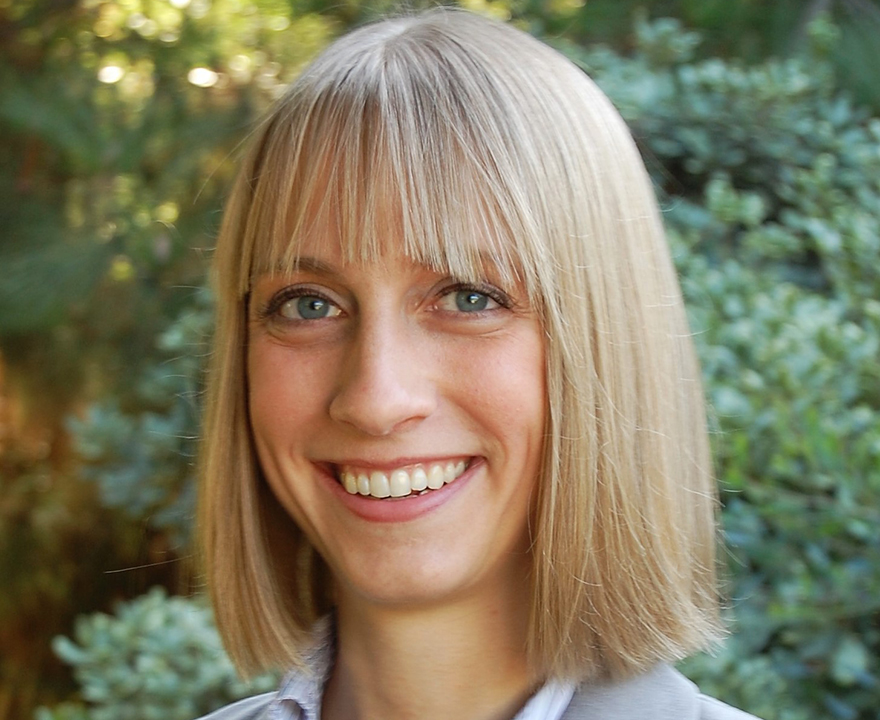Questioning norms

Questioning norms
- May 28, 2019
- Sociology grad student Anna Penner will continue her award-winning research on siblings of children with disabilities as a new faculty member at Pepperdine University
-----
Growing up abroad in Japan and feeling like an outsider shaped how sociology grad student Anna Penner understood the world around her. She began to question cultural norms early on, so when she came to the U.S. for college, she chose an area of study that does just that – and she encourages her students to do the same.
“I love playing two truths and a lie with my students. They never expect me to have grown up in Japan - or to have my motorcycle license,” she says. “While sociology works to put people into boxes to understand trends, this exercise breaks down our expectations of who someone probably is and encourages them get to know their classmates beyond the typical information that is given.”
She’s taken the same approach through her research which looks beyond the traditional picture of families with children who have a disability. Specifically, Penner studies the siblings of children with disabilities in an effort to understand if and how they are affected by their familial circumstances. As the sister of an older brother with physical and mental disabilities, it is a topic that hits close to home for her. But, she notes that it is a relatable topic for many people around the world.
“I wholeheartedly believe that my research, as personal as it is for me, will be personal for a lot of people,” she says. “If one in eight children have a disability, we’re going to have at least one in eight, if not double that, who are siblings of a person with a disability.”
Her research uses statistical analysis to examine behavioral and educational outcomes of siblings of children with disabilities. Her findings indicate that there are negative affects on educational outcomes, particularly in female siblings. Specifically, she’s found that when a girl has a sibling with a disability, they are nearly 50% less likely to graduate from college compared to girls who have typically developing siblings. In contrast, boys are no less likely to graduate from college if they have a sibling with a disability. In addition, when it comes to behavioral outcomes, both boys and girls who have siblings with disabilities act out as young children more than their peers who have typically developing siblings, though it is more noticeable in girls since they tend to act out less than boys in general.
“These findings really challenge the stereotype that these children who have siblings with special needs are the ‘perfect child,’” Penner says.
In addition to her academic contributions to the special needs community, Penner has long served as a social advocate, giving talks to community organizations and families about her personal experiences as well as her research findings. She hopes that as she continues her work, people will be even more ready to heed her work and give the disability community more attention.
“A lot of sociology classes in college talk about inequality across race, class, and gender lines, but they often miss a huge population that cuts across every group of people. People with disabilities are a very important group that is often overlooked.”
Her work earned her the Fletcher Jones Fellowship at UCI as well as a National Science Foundation award for East Asia and Pacific Summer Institutes. And after she graduates in June, she’ll be sticking around Southern California; she landed a teaching position at Pepperdine University. But first, she’s heading to Europe to go to the French Open and a woman’s world cup match, checking off two of her bucket-list items before she starts her dream job.
Congrats, soon-to-be professor Penner!
-----
Would you like to get more involved with the social sciences? Email us at communications@socsci.uci.edu to connect.
Share on:
Related News Items
- Careet RightCongrats to our fall 2025 grads!
- Careet RightUCI sociologists earn American Sociological Association honors, leadership roles
- Careet RightMultiple honors for UCI soc sci's Maricela Bañuelos
- Careet RightApply today to be our 2023 UCI social sciences student commencement speakers!
- Careet RightAttending the National Conference for Black Political Scientists


